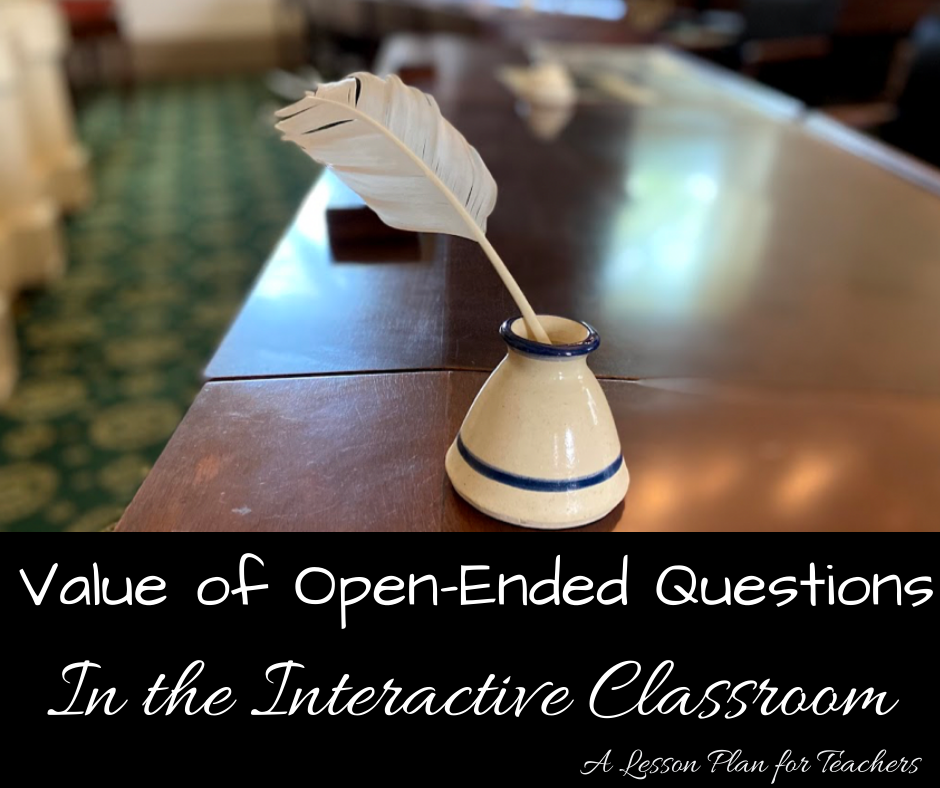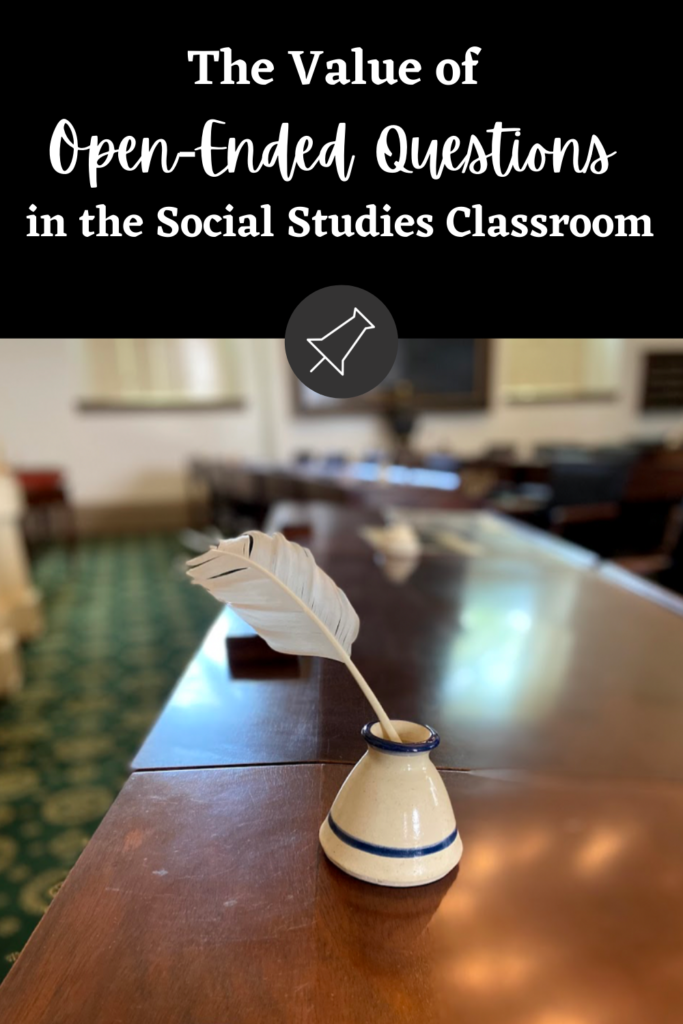While teachers hate the idea of grading hundreds of essays, open-ended questions are the key to assessing student understanding in the Social Studies Classroom. But, open-ended questions don’t have to be lengthy or overwhelming in the instruction or assessment phase.

In my AP World History classes, I started off each semester by assigning a simple thesis statement on the topic of each day’s discussion. This was the daily exit prompt. Then, as students finished, I would do a quick scan on their way out. That gave me a quick idea of who got it and who didn’t. Doing this was an easy and quick type of formative assessment.
Often, we think of open-ended questions as being essays. This does not have to be the case! Instead, they can be short and sweet. Concise writing can be a skill to practice in its own right. Consider the following options for quick and easy writing prompt assessment.
Open-Ended Question Types
- Keyword identification (History IDs): These are your basic who, what, when, where, why responses. You can do keyword IDs on any topic.
- Significance Statements: These are the how and why prompts on historic topics. Significance statements are exceptionally valuable writing exercises for sensitive topics in history. They are the ‘why it matters’ writing prompt.
- Basic Open-Response Question (ORQ): This type of ORQ asks students to follow directions in restating key facts about a topic of study.
- Document-Based Question (DBQ): Along with primary source analysis, students in upper levels need to practice referencing documents in both short and long written responses.
- Creative Written Responses: These are the responses where students can have a little fun! Let them write song lyrics, scripts, short stories, poems, or any type of expressive writing where they can address the content while also showcasing their own perspective.

If you’re looking for a more formal writing activity for your students, browse this post on how to teach the DBQ writing process.
For creative or engaging writing prompts that can be used in your Social Studies Classroom, try these low-prep writing prompt activities.
There is great value to writing open-ended questions in the Social Studies Classroom. It does not always have to come from a formal essay-length prompt. Writing can be short and sweet, yet also effective for student growth and development. If you can make writing fun for students, that’s even better.
Happy Teaching!
